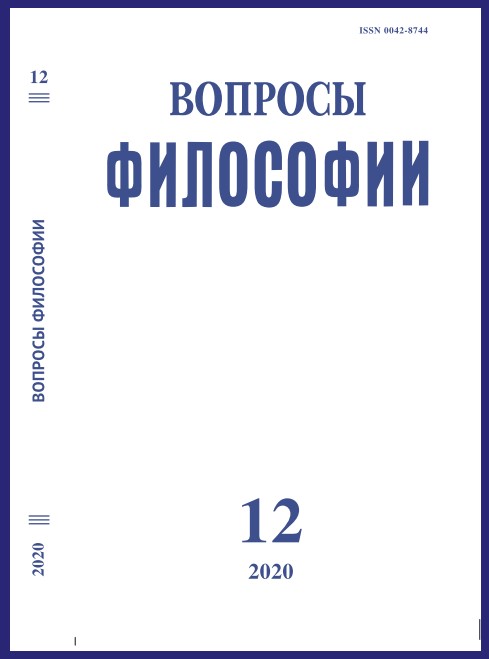Criticism of Hegel’s Philosophy in the Heritage of Philosophy Teachers Moscow Theological Academy of the 19th Century
DOI:
https://doi.org/10.21146/0042-8744-2020-12-165-174Keywords:
history of Russian philosophy, ecclesiastical-academic philosophy, Feodor A. Golubinsky, Viktor D. Kudryavtsev-Platonov, Hegel.Abstract
Based on student diaries and correspondence, the article examines the attitude to Hegel’s philosophy at the Moscow Theological Academy in the first half of the 19th century. Critical remarks to the teachings of Hegel by the professor of philosophy at the Moscow Academy of Sciences Feodor A. Golubinsky: the absence of a logical connection between the previous and the next in the derivation of categories, the pantheistic identification of the infinite Absolute and finite things, the erasure of the ontological border between the Divine mind and the human. There is a connection between the criticism of Golubinsky and the criticism of Hegel by Jacobi, about whom Golubinsky spoke with praise, in this regard, the question of Hegel’s Spinoism, the style of his writings in comparison with the style of philosophical works of the Wolffian tradition, is highlighted. Further, the article presents criticism of Hegel in the writings of a student of Golubinsky and his successor in the philosophy department of the Moscow Academy of Sciences Viktor D. Kudryavtsev-Platonov. The basis of this criticism is noted in the principles of philosophy of Kudryavtsev-Platonov himself, convinced of the impossibility of knowing reality by pure deduction. The article reveals the use by Kudryavtsev-Platonov of the critical argumentation of Trendeleburg: from the very beginning Hegel implicitly introduces the concepts of motion and time taken from experience into the dialectical process. In the final part of the article, the criticism of the Hegelian doctrine of the Absolute in the philosophy of religion of Kudryavtsev-Platonov is analyzed, following Golubinsky who classifies Hegel as a representative of pantheism. The difference in the understanding of pantheism by Hegel and Kudryavtsev-Platonov is shown, the thesis of the latter about the inconsistency of Hegel’s teaching with theistic ideas about God as perfect and separated from the world is considered.

